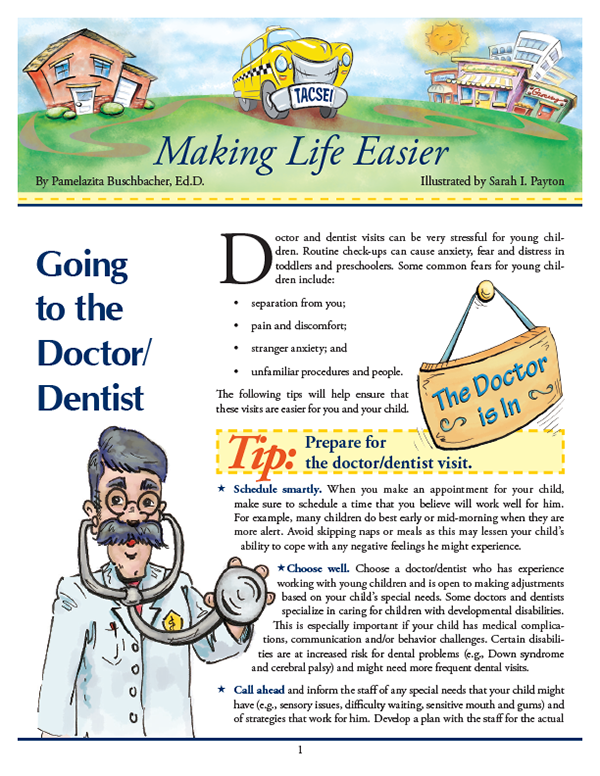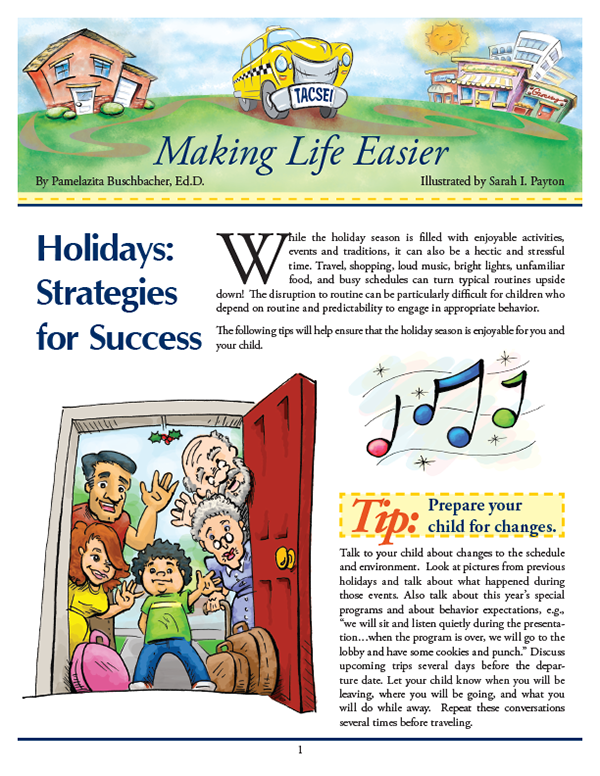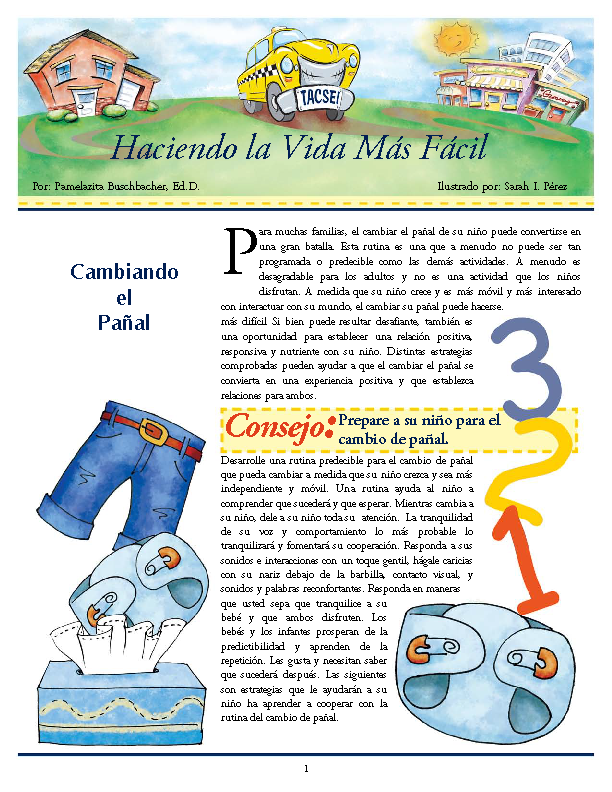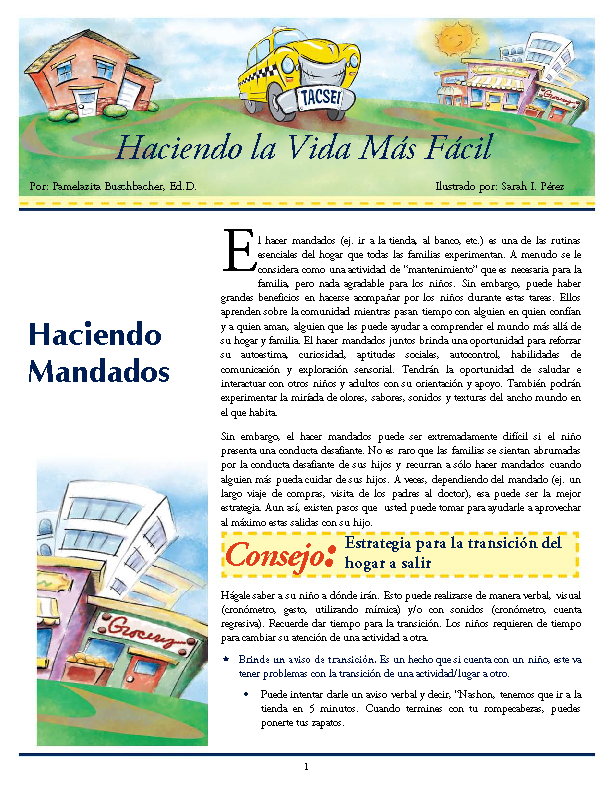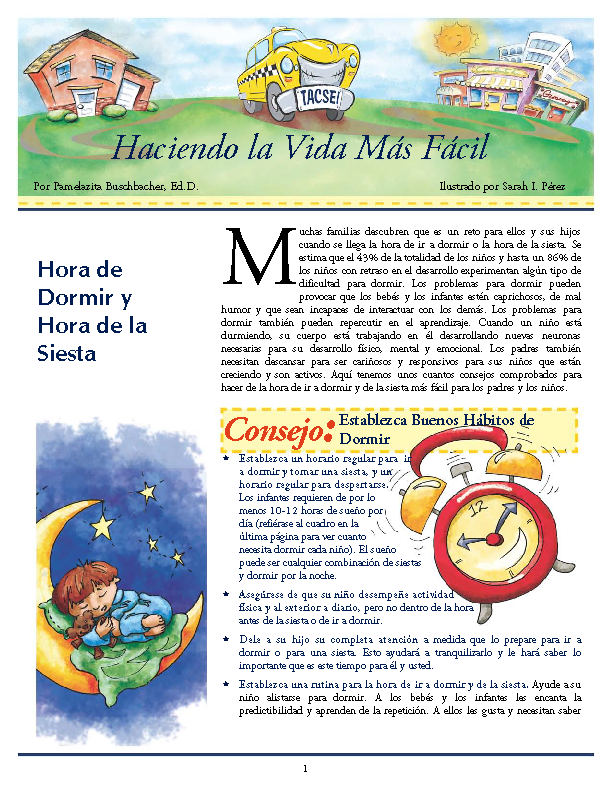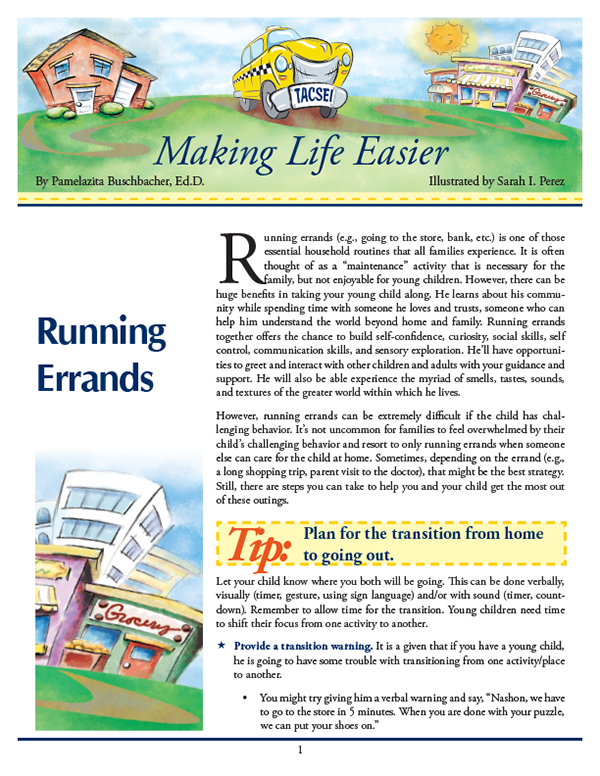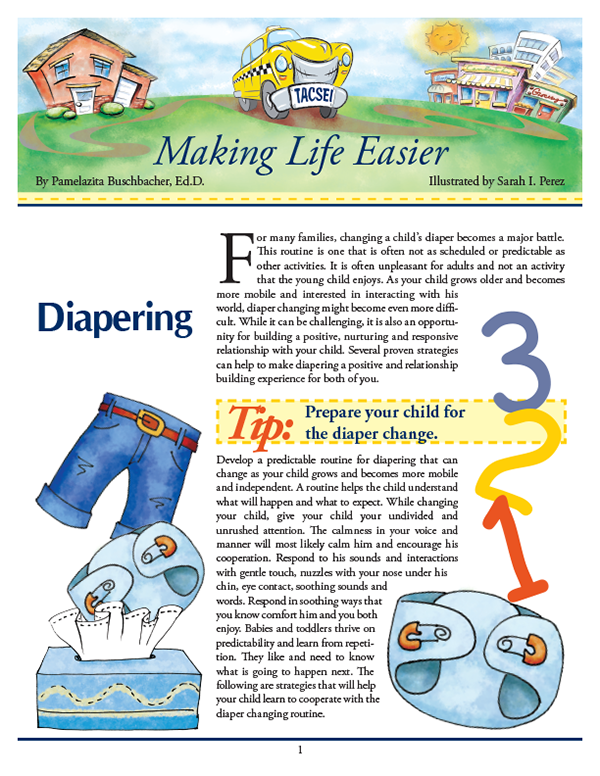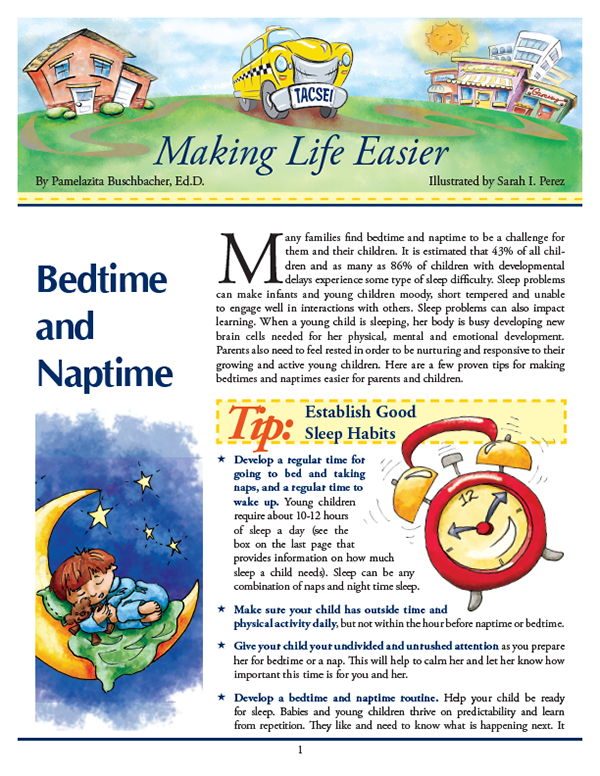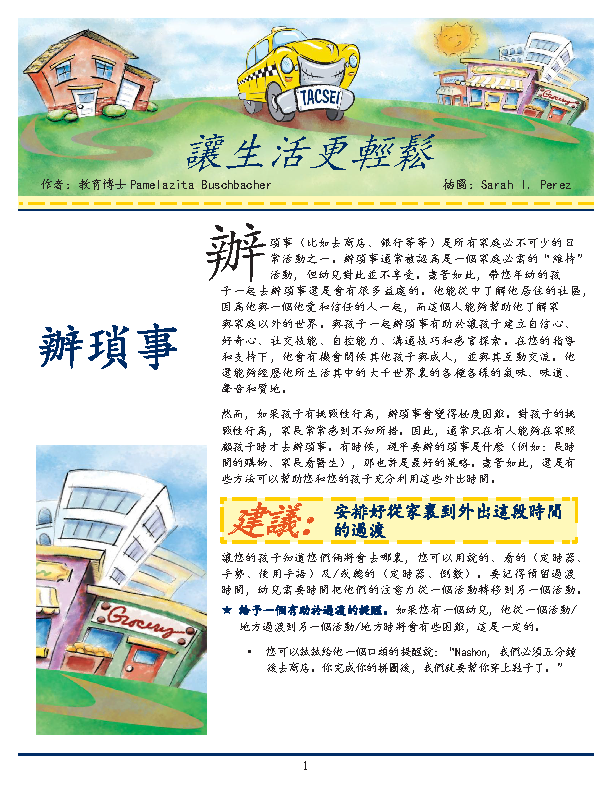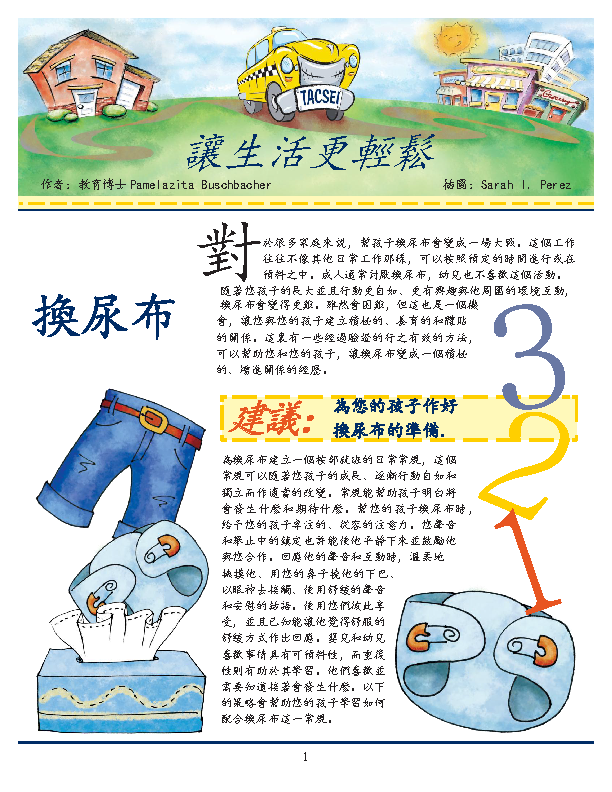Making Life Easier: Going to the Doctor/Dentist
Doctor and dentist visits can be very stressful for young children. Routine check-ups can cause anxiety, fear and distress in toddlers and preschoolers. In this Making Life Easier issue, adults are provided with tips to prepare the child for these appointments and make visits to the doctor or dentist less stressful for everyone.

